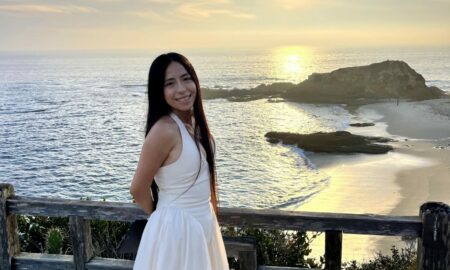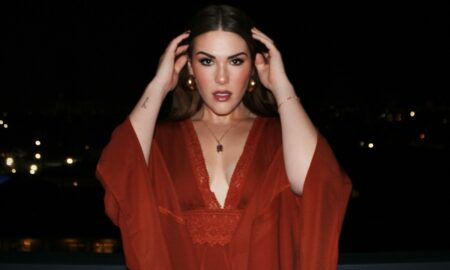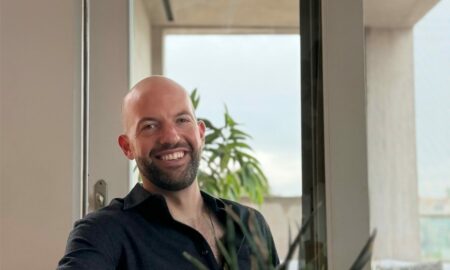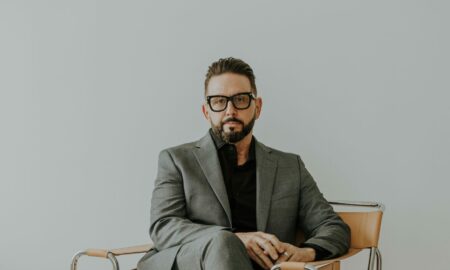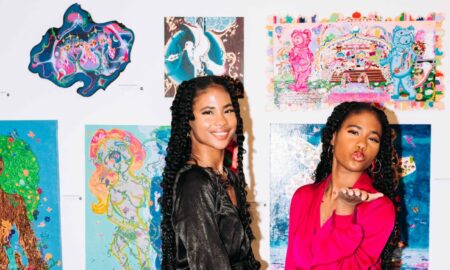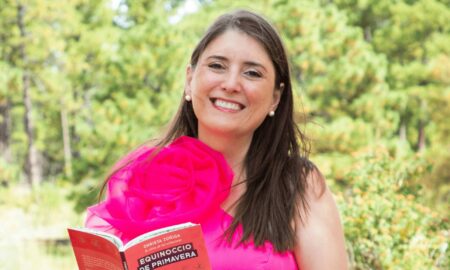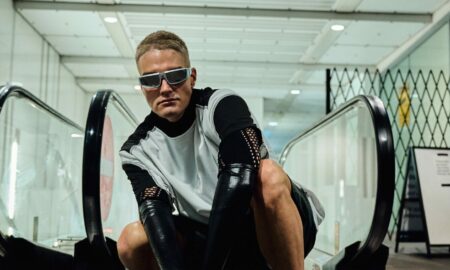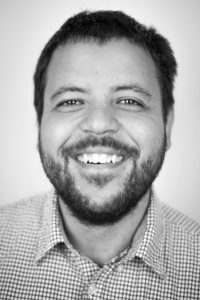
Today we’d like to introduce you to Omar Madkour.
Omar, we appreciate you taking the time to share your story with us today. Where does your story begin?
Ever since I can remember, I was fascinated with the arts, and especially performance. Growing up, my child’s brain kept jumping from one dream job to another. There was a time when I thought I would be a singer, another time when I fascinated about writing, then acting, then directing, and probably there were other dream jobs, all of which pertained to performance arts.
During my undergrad in Cairo, Egypt, I started learning lighting design, but I had no idea at the time that it would become my career. My lighting career progressed very well after school, and eventually I started touring as a lighting designer and as an associate designer.
Touring abroad made me realize that the lighting industry in Egypt’s theatre scene is a little behind. I was shocked at how little I knew about an industry I was an active professional in. Developing countries often have limited funds in the arts, and understandably most of this money is allocated to paying the people working in the industry. Therefore theatre in Egypt utilized obsolete equipment and a simpler technical scale.
I started obsessing over learning as much as I can about fancy lighting gear and advanced softwares. I was privileged enough to gather a combination of scholarships and funds to start a MFA in Lighting Design at CalArts in Los Angeles. On my first month in grad school, one of my professors told me that if I am focused only on learning the technology, I will be outdated by the time I graduate… technology changes fast!
At the time, this advice scared me because it had me rethink the intention of my three years stays halfway across the world from home. However, looking back at that conversation, it was probably the best professional advice someone gave me. I have been in LA since 2018, and throughout this time I feel like the thing I gained most is developing my artistic voice and style.
I have become a very different person than who I thought I would be. My studies and practice and the people I worked with really shaped me to think of myself as a visual artist and a creative collaborator. A collaborator who isn’t defensive or protective over their ideas, but also who isn’t shy to make suggestions and take risky & bold decisions.
At the end of the day, I think of lighting as a visual tool that contributes to the storytelling… and therefore, I try to be as sophisticated in my design as the director and the playwright are in our production.
Would you say it’s been a smooth road, and if not what are some of the biggest challenges you’ve faced along the way?
The struggles and challenges from within the career have been valuable lessons… however the real road bumps are the obstacles which you don’t have control over.
For instance, there was a revolution in Egypt in 2011 and later again an uprising in 2013. During these years, the different art scenes in Egypt were struggling. A lot of people in Egypt didn’t want to leave their houses because there were curfews on and off; there were demonstrations and road blockage here and there – etc.
It was after 2014 that live performance started (looking normal again). However, I feel like during the years prior, the TV industry developed to cater to the prolonged indoors stay.
This isn’t different from how streaming services have been trying to fill an entertainment gap during the pandemic. Some streaming platforms now have recordings of theatre shows, and I know a lot of people who think this is great exposure for the theatre scene. However, I think that if this goes on after the pandemic, it will really harm the live performance scene.
Crazy as it sounds, the biggest struggle I have – and I think its a struggle that all people in my field have – is convincing someone to put on pants, leave the comfort of their couch, drive to a theatre or a museum, pay money and attend an art event!
Appreciate you sharing that. What else should we know about what you do?
When someone asks me what does it mean that I am a lighting designer, I search Lighting Design on the internet and find a really cool looking photo, I show it to them and tell them I do things similar to this.
In my first technical theatre class in undergrad, I had to prioritize my specialization of interests and give an explanation for it. Lighting was on top of my list, and my justification was that lighting is the nearest thing to magic. You can do so much with so little. You don’t need stagehands and machinery and tools to shift the mood or take the audience from one place and time to another. It is smooth and swift and effective. It is beautiful and breathtaking.
Any time I approach a new project, I try to find this green fascination within. Sometimes the stars align and the design comes out beautifully, but not always… and this is part of the beauty of art. It is not a mathematical equation that you repeat and get the same answer every time! Of course, this can be frustrating along the way, but when it all comes together, it is the happiest thing ever. The most rewarding moments of my young career have been witnessing audience being touched by the show they just attended. For me, this varied from kids running after our tour bus in an underdeveloped Egyptian town asking if we were to come back soon and perform – to very intense and emotional talkbacks in big festivals and international venues.
It is an honor, a privilege and a responsibility to be able to touch someone’s feelings and thoughts. To be a part of creating a space that allows for all of us to exist in vulnerability, reception and thought.
This is what I do! I sit in the back of the room and I push buttons on a sophisticated control board in attempt to co-build this space for us to exist in – for two hours… and I hope that when you leave, you would still remember that space, for some time at least.
Are there any apps, books, podcasts, blogs or other resources you think our readers should check out?
I feel like my interactions with people have been the most informative thing in any creative process I have been through. Of course, all the above-mentioned resources in are fundamental, but if there is a common element in my work, I would say it is the people I am dealing with.
Contact Info:
- Email: [email protected]
- Website: www.omarmadkour.com
- Instagram: https://www.instagram.com/omarbmadkour/
- Facebook: https://www.facebook.com/omar.madkour.98/






Image Credits:
Headshot by Ibti Shedid Production Photos by Hao Feng, Angel Origgi & Gema Galiana












